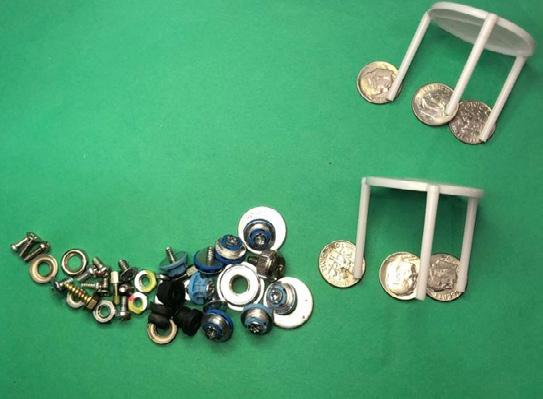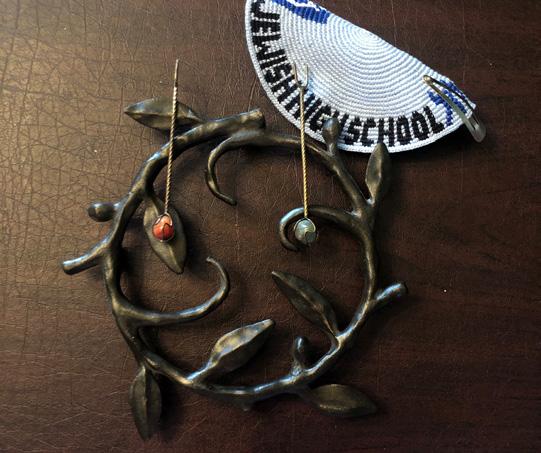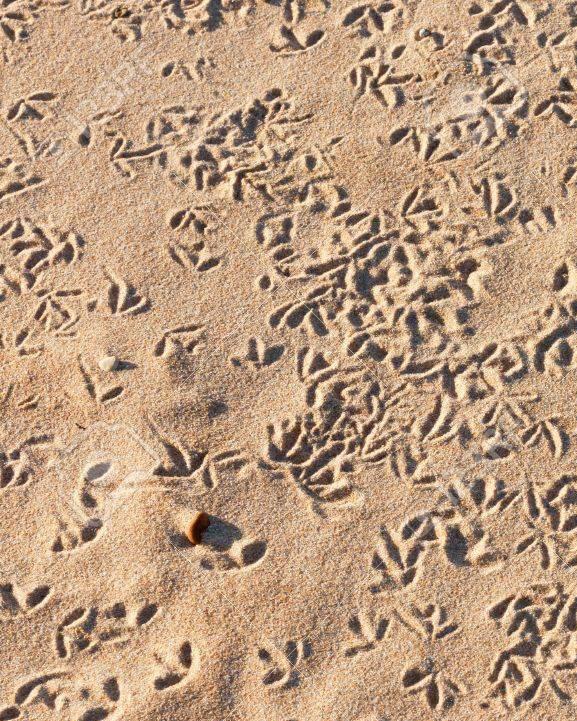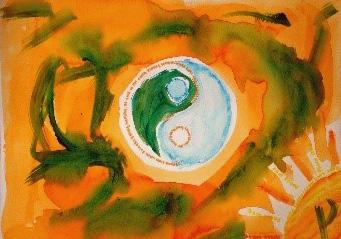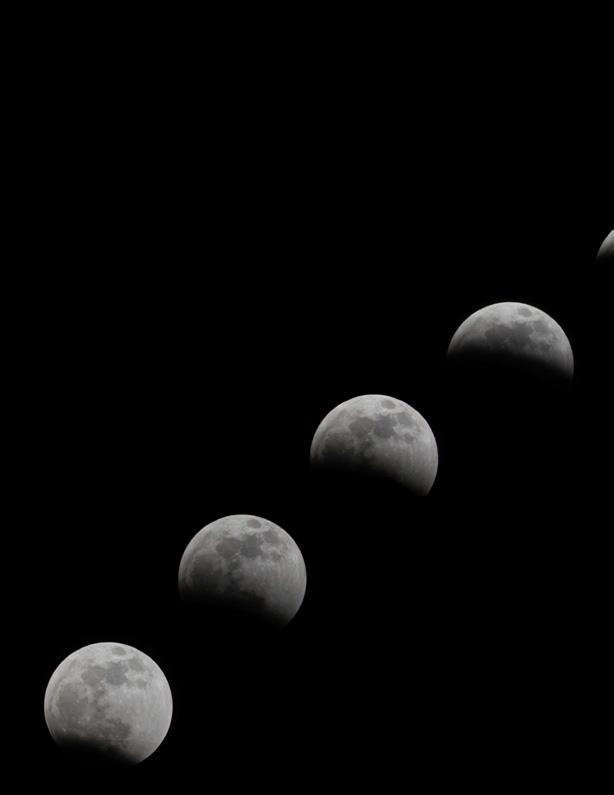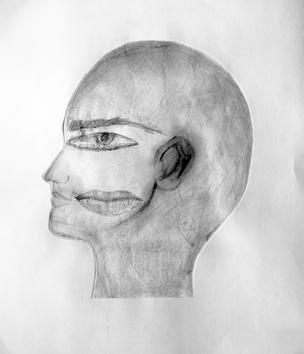
13 minute read
Maytal Meisler
The Torah of Rochelle Zell
Developing My Faith in God Maital Meisler, RZJHS 2020
Faith is a complicated subject. As delife, I considered myself a person of faith, but I always felt vout Jews, we are all expected to have guilty for holding that title because I did not believe that faith. Yet, how can we “have faith” G-d wrote the Torah or split the Red Sea. when most of us cannot even define it. Rabbi Louis JaI would always think to myself, cobs asserts that in order to have faith we must undergo I worried that faith would be “Am I lying to myself by calling myself a person of faith if an intellectually honest explosusceptible to the Jenga effect; I do not believe in core aspects ration of tradition, belief, and if I removed one aspect of an of the Jewish narrative?” Howtrust in G-d, while simultaneinternationally accepted concept, ever, I came to the realization ously struggling with the ebb and flow of uncertainties. It is this uncertainty, however, that always catches me. How am I my entire tower of beliefs would fall down. But the base of faith is stronger than this. that, as Louis Jacobs says, “To invoke faith in order to reject highly circumstantial evidence comes perilously close to besupposed to put all of my trust lief in a God who plants false into uncertainty. clues” (“Faith”).
Since I lost my simplistic, childhood ignorance, I have Revelation does not necessarily mean that G-d wrote struggled with my faith in G-d. I was told by my middle every word of the Torah and handed it to Moses on school teachers that I needed to have faith in G-d, faith Har Sinai. Rather, I interpret this narrative about B’nei that G-d will protect my family, Yisrael’s standing at the foot of faith that G-d will heal those in need of healing, faith that G-d will lead me to make the right By changing my perspective on the Red Sea from a historical event to the mountain to be a representation of our ancient commitment to religion and trust in a decisions in life. But I still had a metaphor, I allowed myself to higher power. The Torah is not no idea what faith meant. strengthen my faith in G-d. Not a history book. Without aconly is it acceptable to consider counting for new evidence in a I knew faith was supposed to be something greater than me, but I did not feel so compelled by the concept. I began to push myself a person of faith without believing in the historical accuracy of the events described in the Torah, I am belief, I would be standing for a G-d that has a false view of the world. Art by Megan Smith, Class of 2022 further away from my faith as encouraging intellectual honesty, I worried that faith would be middle school continued. I reand therefore escaping a world of susceptible to the Jenga effect; if member my seventh grade Talfalse clues, by doing so. I removed one aspect of an inmud teacher explained to our ternationally accepted concept, grade that none of the Torah is my entire tower of beliefs would real. Every event is a metaphor fall down. But the base of faith is for a life lesson, written by ancient Rabbis. When those stronger than this. For example, while I don’t believe G-d words came out of my trusted teachers mouth, I deteractually split the Red Sea, I reinterpreted the narrative as mined that there is no point in even trying to have faith a representation of G-d’s power. anymore. The basis of Judaism is all a lie. However, as high school began, I started to realign myself torical event to a metaphor, I allowed myself to strengthwith my faith. Unlike middle school, I wanted to have en my faith in G-d. faith; this made my high school struggle with faith vastBy changing my perspective on the Red Sea from a hisly different than my previous struggle. At this point in See Meisler, next page
Not only is it acceptable to consider myself a person of faith without believing in the historical accuracy of the events described in the Torah, I am encouraging intellectual honesty, and therefore escaping a world of false clues, by doing so.
As we are all entering a new school year, and Rosh Hashanah, we must use the power of new beginnings to reshape perspectives on life that may be holding us back. As Jewish people and general citizens of humanity, we must scrutinize all of our beliefs.
Although it’s easier to fall back on the comforts of previ
Lynch, from page 21
When Adam and Eve break His rules, He is outraged. Although however furious He is, God does not in fact kill them, but bans them from the garden. The fact that Adam and Eve are not killed is very significant. As it is written in Mishnah Sanhedrin, “Adam was created alone to teach you that anyone who kills another, the text [Torah] speaks about him as if he killed an entire world” (4:5).
If Adam were in fact killed on the spot by God, the whole future of humanity would not exist. None of us would be alive. We know very well from studying Torah that God does not act without reason.
Adam and Eve make a mistake but God gives them the chance to repent and live on. Heschel writes in his article “Sacred Image of Man” that humans were created in the likeness of God, thus making us all reflections of God.
Humans are not the center of the world, but we carry the presence of God within us. God would not kill Adam and Eve because they held a certain godliness that must be taken account for.
Given the responsibility of taking care of this earth, we are indeed crucial to creation. Both narratives serve to clarify our purpose as humans. Even if you don’t believe in the historicity of the creation story, there lies a deep truth and meaning within it. You can try to rationalize it with science or you can simply The Torah of Rochelle Zell ous beliefs and connotations, in order to truly give ourselves a new start, we must ask ourselves why. Why we believe in what we believe in. If you do not know, perhaps it’s worth further exploration before committing yourself. As this year begins, I encourage all of you to scrutinize what you think you believe.
Do not let fear hold you to past presumptions. These new activities for learning and growth do not have to shatter your foundation. Rather, they can be incorporated within your foundation of faith. Such intellectual honesty and desire to continue scrutinizing is exactly what G-d wants of us. Take an internal leap of fait — whatever that faith means to you — in trusting that you can reshape your beliefs.
accept it as religious expression.
However you choose to interpret the creation stories, you must find a balance between heart and mind. What you know in your heart may not be comprehensible to your mind; a certain truth exists that is challenging to put into words.
The truth of science and truth of Torah should not have to conflict; truth is eternal. The text may not specifically replicate what we know of human evolution or the Big Bang, but that should not be seen as a dilemma.
Rabbi Arthur Green writes, “No, I do not believe it (the Torah) in any ordinary intellectual sense of that term. I also know with all my being that I find this tale both deeply attractive and irresistibly powerful” (Seek My Face).
The Torah is neither a historical nor a scientific document. Creation is a miracle. We don’t truly know why or how creation occurred, but we do know it had to happen. That acceptance is faith. The creation stories give expression to that faith.
We see the importance of human duties on Earth, the godliness we were intended for, and the infinite power of God. We can try to look for details about history within the text, but we will never find that kind of affirmation. As long as we continue to interpret and find meaning in this ancient text, the creation stories will lead us in a life of meaning and faith.
In accordance with the stories I shared in the beginning, I believe it is important that we create a vibrant, purposeful form of spirituality so that we can connect to God. Our actions shouldn’t be meaningless and boring. Our connection to God will come about if we are a) intentional b) creative and c) committed to the process. For Buber, it’s all or nothing. You can’t connect to God through someone else’s rituals at all. Using someone else’s ritual cannot be authentic, to Buber. It’s either religion or spirituality. It’s either Jewish tradition or one’s own creativity.
For me, however, Buber is too harsh of a critic when it comes to religion. I think individuals can find meaning by creating their own authentic form of religiosity that still includes some traditional forms. I can, with intent and commitment, choose to practice rituals of our tradition. I know this, because my prayer includes both traditional rituals and my own creativity.
One last point: it may seem like spirituality can only take the form of prayer. Buber reveals, though, that Eve, who, according to Klitsner, was trying to regain the equality that once existed between man and woman will now be unable to do so. However, this inequality between genders is not the Biblical ideal of Genesis 1. It is essential to work to overturn the portrayal of Eve in Genesis 2 for it tarnishes how women are viewed in the Torah. this is not the case. Spirituality is an entire way of living, not just what we typically think of as “religion.”
As I stated earlier, individuals should strive to form a relationship with God in a way that is creative and authentic to them. This could be through poetry, exploring nature, etc. It could also be through our actions of making the world a better place. For Buber — and for me — what’s important is that we realize God’s reality in our world and construct a form of spirituality that answers our own needs. When we intentionally use our creativity and our commitment, we can connect to God.
I want to say thank RZJHS for helping me find my own authentic form of prayer. RZ taught me to value my prayer and my connection with God. Also, I want to thank my fellow seniors for being such a supportive and energetic group of people.
Observing and participating in Tefillah with all of you has taught me the significance of a community. I want you all to know that I truly appreciate and love each and every single one of you. Thank you all so much for the best four years.
Scholder, from page 20 the appreciation of women not only in a male-domiHowever, despite Eve’s efforts to regain her equal status, dur highlight men for, after all, the siddurim we use she falls victim to Adam. While all three perpetrators in Tefillah are written with male-gendered language. — snake, Man, and Woman — And if wanted, we can add the are punished for their actions, matriarchs as an option in the Torah scholar Judith Klitsner teaches us that Eve’s punishment where her “urge shall be for [her] Reading the Torah with a more feminist lens allows for the Amidah. The movement from Orthodoxy to our Conservative prayer, though not for everyhusband, And he shall rule over appreciation of women not only in a one, allows for the addition of [her]” marks the Biblical roots of male-dominated religion, but also the matriarchs and the furtherour male-dominated society. in life. ing of egalitarianism.
nated religion, but also in life. The Torah and the sidThis acceptance of women’s role in prayer at our school is an attempt to help us return to our original, God-given status, portrayed in Genesis 1. The change that has occurred from my grandparents’ generation to mine, both in Judaism and in every day life, shows how persistence can help to overturn the inequality described in Genesis 2 and restore our world to what once existed, when God simultaneously created male and female.
The Torah of Rochelle Zell Rosen, from page 3 Miraculously, in the final perakim, the final chapters, the understanding that we now possess the responsibilWe are meant to question. In an effort to console him, Job’s friends suggest that of the book, G-d reveals G-d’s self to Job. G-d first adAt RZJHS, one of the core principles we are taught is monishes Job for presuming he, a human being, could that the Torah is alive, the Torah has its own heartbeat. comprehend divine justice, to which Job apologizes. We study Tanakh, Talmud, commentators, and other friends who spoke the Truth. The Truth of our humilvoices in our tradition to establish our foundation with ity, our humanity. Pivoting, G-d then asserts that it was Job and not his ity, the opportunity, to continue their work. My point is that as we move on in our lives and become more independent we What work? To be Jews! To will face a world that seems live and make the ethical abThe whole point of education is to to operate in an unfathomstractions we have studied reality. And that all starts with faith. enlighten, to see more...By asking questions and taking the time to able chaos. What we have been taught at Rochelle Zell is to not just give up on creponder answers we instill in ourselves ating order, to not give up We do not practice “blind faith” or “blind obedience”. The whole point of education that spirit that the work we are doing matters. To look out into the massive, the Jewish work. We need to be a storm for good in the midbar, the desert, the is to enlighten, to see more. gaping, crushing, universe and say wild. Rabbi Louis Jacobs described Judaism as “a questioning faith.” that our ideas and the mitzvot and good deeds we are accomplishing here Our engineers will build bridges, our musicians will matter, that is what keeps us alive, compose harmonies to By asking questions and taking the time to ponder ankeeps our heartbeats going. bring us all together, and our scholars will enlightswers we instill in ourselves en like our teachers before that spirit that the work we us. And while our thunder are doing matters. booms across the world, wherever we are, we cannot To look out into the mas sive, gaping, crushing, uni What we have been taught at Rochelle get caught up and become deaf to our heartbeats. We verse and say that our ideas Zell is to not just give up on creating will oscillate. and the mitzvot and good deeds we are accomplishing here matter, that is what order, to not give up the Jewish work. We need to be a storm for good in the We will make mistakes and maybe we will linger too keeps us alive, keeps our midbar, the desert, the wild. long one way or the other, heartbeats going. but we will correct ourselves This year we studied the book of Job. Job, an upright So let us look back. To Sinai. Today we are not sure exman from Uz, unfathomably first loses all his wealth actly what happened or where Sinai even is, but what and then all of his children. Confronting his shattered we do take from Sinai, along with the Torah itself, is reality, Job questions why G-d would wrathfully target our collective memory of receiving the Torah, of behim, an innocent, righteous person. ginning our peoplehood, that feeling of realizing our and progress. identity. Job should repent for the sins he clearly committed to Leaving high school is exactly what we need to reincur this apparent divine punishment, but Job refuses member from our time at Rochelle Zell. Our identity: to believe that what he suffered was just. who we are and what we stand for.

